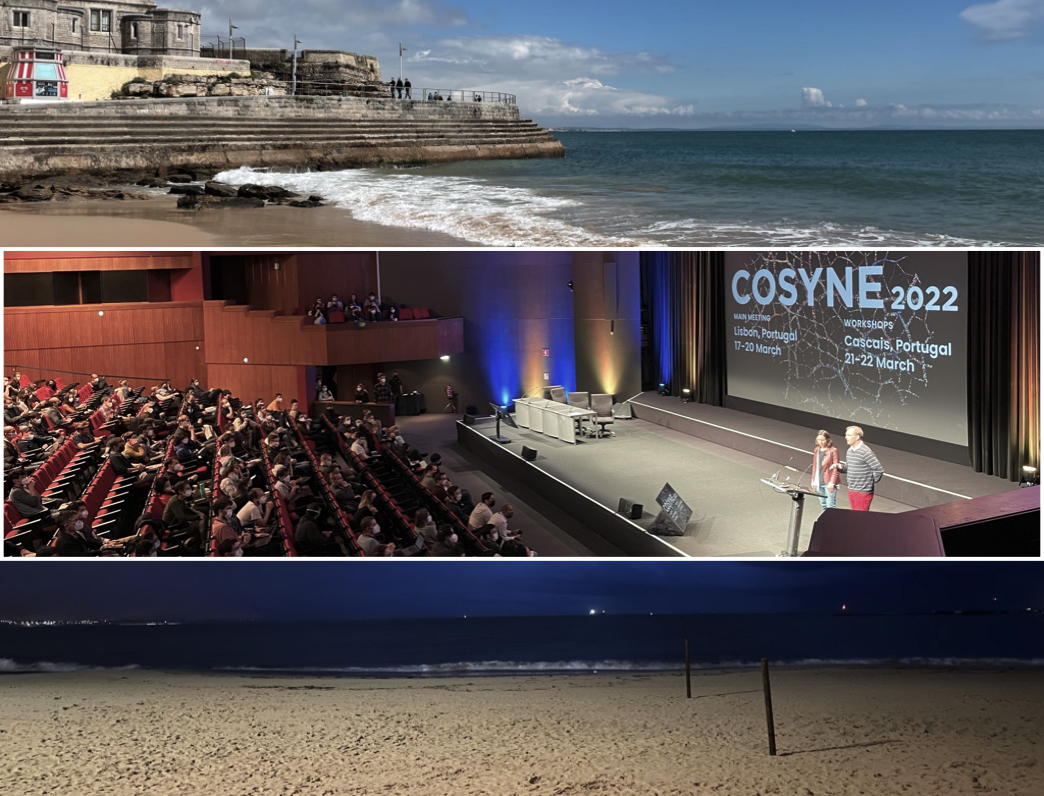Let me open with an anecdote: last night I bought a rain jacket from SportsChek, it was on sale 30% off for $100 and it’s a relatively good brand (as I was told by one extremely fashionable Western U girl). But the biggest thing that did it for me was really the color scheme, which for some reason I fell in love with at first sight. Having made the purchase, I informed the parental units that I’ve bought my jacket this morning over breakfast, since they knew I’ve been looking for one for a while. Upon demonstration, the objections came in the following order:
1) “it’s too small”
“but the sleeves are perfect length!”
2) “there won’t be enough room to fit a sweater under”
*proceed to wear a hoodie underneath*
3) “the color scheme makes you look bottom-heavy/immature/etc”
“okay….”
4) “the design is made for white folks with longer arms, you obviously have to get a different brand”
“……“
5) “you just really love it now, wait till you become more rational after a few days”
Pause. This simple, and honestly, quite standard exchange just enlightened me, for the hundredth time, upon the reason for over 80% of the pointless arguments I have, and I’ve formulated it, as titled, the danger of rationality.
Rationality exists within a particular system, a system with values and mechanisms to achieve said values. From outside the scope of the system, rational behaviors are really better described as consistent than logical. However, it seems that this fact is obscure to all but the most rigorous of mathematicians, those who do not preach “1+1=2”, but that “1+1=2 is an assumption”. Those that set up the boundaries of the system are most aware of the internal versus external, the rational as the consistent. Those of us who have lived our entire lives within one system, however, struggle to make sense of the possibility that another set of different behaviors can be equally “rational”. This, in essence, is the beauty and danger of rational thinking: I am justified in rejecting your views, not because my views are consistent for me in my system, but that my views are consistent for everyone, with the implicit and forgotten assumption that we are within one system and therefore, rational for everyone. Let me stress that, this is not just “I like X because I just do”, but “I like X because of logic, and how can we question logic?” How convenient and secure.
Raised in a rational household and excelled in logical subjects, my whole life until now has been devoted to rationality: math, physics, engineering. Slowly, and I don’t know when it happened, the rational thought process became my safe haven, and shortly after that, my only mode of engagement with the external world. I embraced what I could reason through and denounced what was arbitrary. I accepted your superiority if you could logically convince me of your views, while I secretly pronounced you stupid if you didn’t follow my line of reasoning: boundary, value, mechanism- the whole package. When I arrived for Engineering Science at UofT, I thought I would bask in the glory of certainty, objectivity, rationality, both in my studies and in the people around me. Never will I have a stupid argument again, because we can work things out as, wait for it, human beings. It’s almost comical now that I look back, when I sought out my first summer research project, which was titled: classification of emotions through psychophysiological markers. In other words, rationalizing what’s systematically arbitrary with mechanisms I understand in the only system I’ve ever known. Later, I met some of my best friends, who just happen to share my righteous obsession of rationality. Ironically, it is exactly through my very real and sometimes difficult interactions with them, and of course, with my better half, that I’ve slowly been able to understand the boundaries of my own system. After all, when a group of extremely logical people argue for hours on end with no resolution, with perfectly justifiable facts, mind you, the only logical conclusion is that there are fundamental differences in the systems we reside in.
Let me finish here before I end up telling my whole life story. My point is not to prescribe a life with no rationality- that would indeed be stupid. As any advice in life, it is only valuable given the context that came before it, and in this case, let this be the advice I give a 16-year-old, rational, me: rationality is a tool to express yourself, to organize yourself, and to improve yourself. It is not a boulder behind which to hide yourself and your choices, and it is certainly not justifiable grounds for rejecting “irrational” opinions. Engage people around you as who you are, not the system you operate in, and more importantly, do the same for them. Now let me give the same advice to my 23-year-old self, because god knows I’ll need it. Oh yeah, did I mention that my newest obsession is now a mechanistic understanding of human cognition and consciousness?
I think I’ll keep the jacket.




